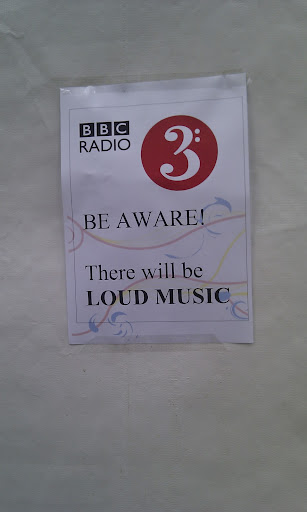The Guardian is running a promotion this week, whereby readers can download free audiobooks from
audible.co.uk. A different title is made available each day.
Saturday:
The Girl with the Dragon Tattoo by Stieg Larsson [
Audible link]
Sunday:
Armando Iannucci's Charm Offensive [
Audible link]
Monday:
Sir Charlie Stinky Socks and the Really Big Adventure by Kristina Stephenson [
Audible link]
Tuesday:
Matter by Iain M. Banks [
Audible link]
Wednesday:
Down and Out in Paris and London by George Orwell [
Audible link]
Thursday:
Rapid French: Volume 1 by Earworms Learning [
Audible link]
Friday:
Yes Man by Danny Wallace [
Audible link]
Each free download is only available for a week, so don't hang about.
The way it works is users have to create an account with audible, and each of the free audiobooks is added to a virtual shopping basket and purchased for a cost of £0.00. Each audiobook is then downloaded using the audible download manager. No purchase is necessary, and no credit card details are required to set up the account.
One problem with this is that Audible uses a proprietary format for the files: they aren't .
mp3 or .
ogg, but a peculiar .
aa format (shame on you, Guardian, BTW, for going along with this .aa malarkey). Another problem is that the files appear to be very heavily compressed. However, the ingenuity of the internets can help those who don't want to be hampered by a proprietary format. The audible account is flexible enough to require users to specify how--ie on what platform--they want to listen to the files. Available options are "iPod", "MP3 & GPS", "Mobiles & PDAs" and "Computer and CD Burning". Select "Computer and CD Burning".
The third problem is that the only way to get the files is to use the audible downloader, so you'll just have to install that and dump it later. So complete the sign-up process, and figure out how to download the .aa file via the downloader.
The next thing to do is to use the google to find, download and install a file called
audibleMediaPlayerFilter.exe This is an old application, no longer used by Audible, but installing it will also install an aa-compatible codec, which is needed to open these files before converting them.
You'll also need LAME (Lame Ain't an Mp3 Encoder) so if you don't already have it, go back to the google and find and download
LAME. However you get LAME, you'll need to drop a copy of lame_enc.dll into the C:/Windows/System directory. This is needed to convert those pesky .aa files to MP3 format using an application called Goldwave. Note that Goldwave needs to have the lame dll in the C:/Windows/System directory in order to be able to export to MP3, so if you've already got LAME installed, just drag another copy of the dll here.
Go back to the google to find, download and install
Goldwave 5.06 Note that later versions of Goldwave will expire, so make sure to get 5.06.
Finally, just open the downloaded .aa file with Goldwave and save it as an MP3.
(This method doesn't work with .aax files, Audible's so-called "enhanced" format. In this set of free downloads, only the Rapid French title uses the aax format.)
As an alternative to exporting as an MP3, export the file from Goldwave as a wav file, then open the wav in
CDWave (a shareware app used by audiophiles) which is nicer than Goldwave for tracking, and add track divisions or chapter points.
Goldwave can also be used for tracking, using what it calls "cue points", but it involves quite a bit of scrolling and zooming in Goldwave to place the cue points, while the process is more straightforward in CD Wave (CD Wave only reads lossless
WAV or
FLAC files).
Last time The Guardian got together with audible.co.uk to give away a free audioboook, there was an embedded player on the page with the option of streaming the file, downloading it as an MP3 or using some subscription service thing called iTunes. While the streaming/downloading options were better than the current offering, the book was
Wolf Brother, a fantasy tale aimed at younger readers/listeners, by Michelle Paver. However, it didn't expire after a week and, three years later, it's still available here:
http://www.guardian.co.uk/books/series/wolfbrother.
 Splendid as it may be that The Ukulele Orchestra of Great Britain will be playing at that most august of venues in the county town of Ipswich, namely The Regent, it's more than a little flabbergasting to discover that the price of each ticket is inflated by an extortionate £2.00 if they are purchased with a credit card, debit card or a cheque.
Splendid as it may be that The Ukulele Orchestra of Great Britain will be playing at that most august of venues in the county town of Ipswich, namely The Regent, it's more than a little flabbergasting to discover that the price of each ticket is inflated by an extortionate £2.00 if they are purchased with a credit card, debit card or a cheque. 














